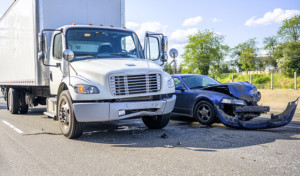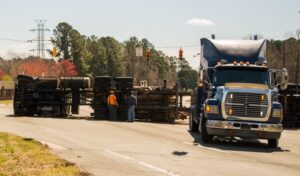
How Common Are Trucking Accidents?
Today’s blog is about trucking accidents – why they’re so deadly, the most common types of accidents, and tips for preventing them when you’re behind the wheel.
¡Hablamos Español!

Today’s blog is about trucking accidents – why they’re so deadly, the most common types of accidents, and tips for preventing them when you’re behind the wheel.

Accidents happen, but what percentage of accidents are caused by trucks? We’ve all experienced a traffic slowdown where multiple lanes are closed while police and emergency medical services work to

You might assume that a truck accident and a car accident are quite similar; however, truck accidents pose a much greater threat to U.S. roads. A variety of factors distinguish

You may assume accidents involving large commercial vehicles only occur on city interstates; however, most truck accidents occur on rural roads. Though the fast speeds and traffic congestion on highways

Road crashes are expected to become the fifth leading cause of death in the U.S. by 2030. Among road-related deaths in 2017, 4,657 of them were caused by trucks, according

Commercial trucks, such as delivery trucks and big rigs, present tremendous dangers on the road to smaller cars and their passengers. Truck drivers must be aware of the potential harm

Truck accidents can be caused by any number of factors. Pinpointing the cause of the accident can help establish liability and give a victim legal grounds for making a claim

All auto accidents have the capacity to be dangerous and claim innocent lives; however, none are as inherently dangerous as accidents involving 18-wheelers and other large commercial trucks. When passengers
Driving fatigue is a psychological and physiological event that can affect any driver. The impact of fatigue can cause strain on the vehicle’s driver and creates a potential for a
Commercial vehicles such as buses and large trucks are regulated by the federal government to ensure the safety of those who travel in them and those who share the road